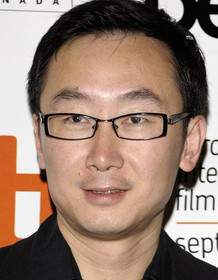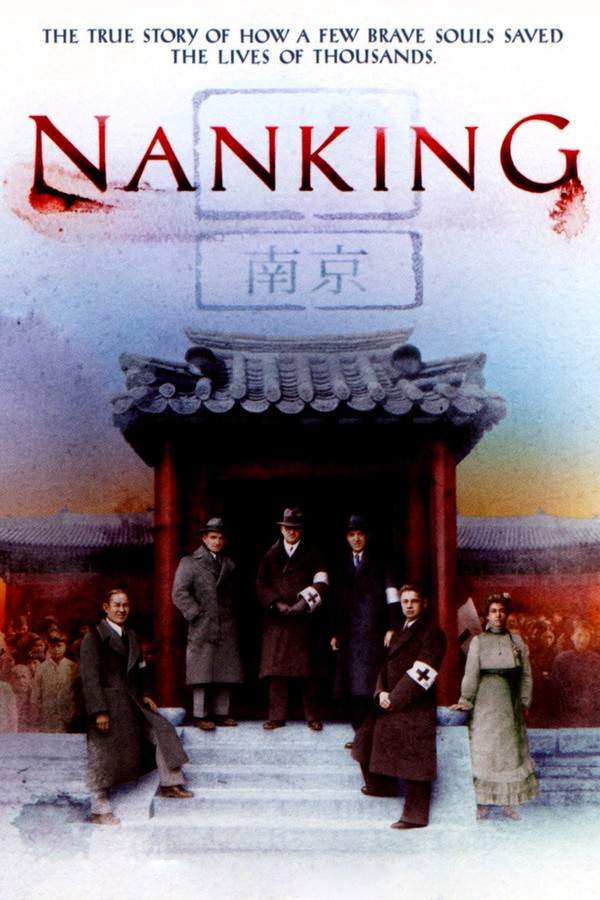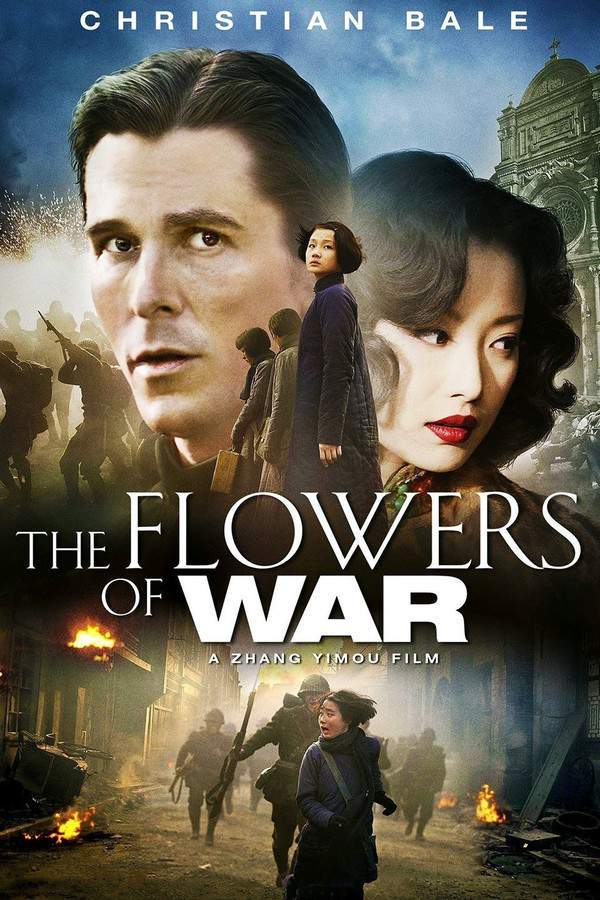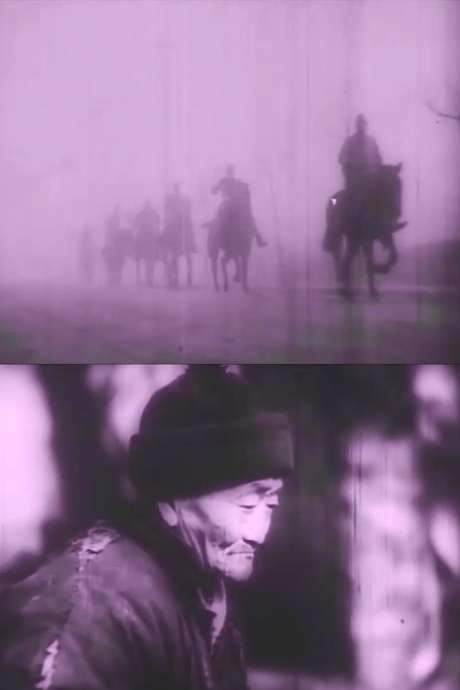City of Life and Death 2011
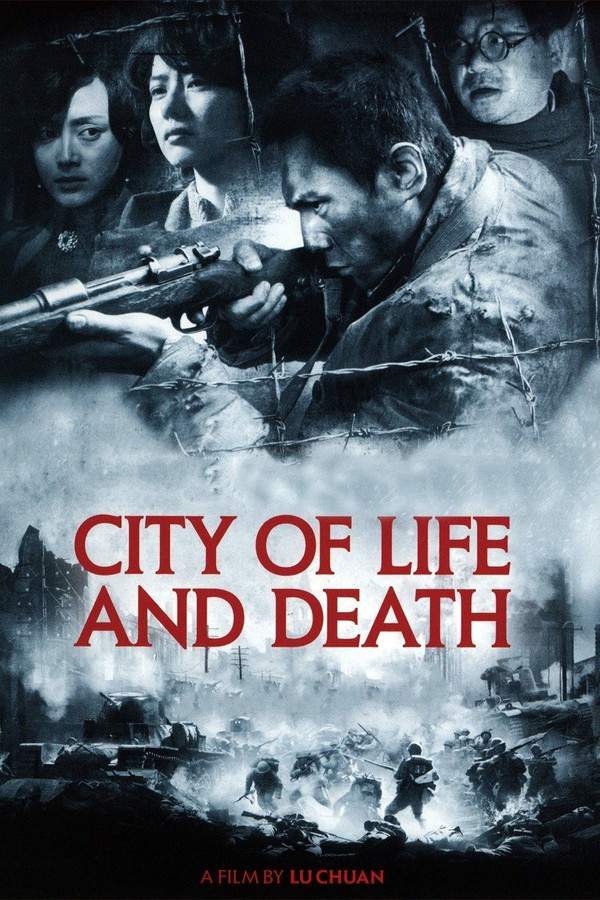
During the Japanese Imperial Army's siege of Nanking in December 1937, unimaginable terror unfolded, resulting in the tragic loss of up to 300,000 lives within a span of six weeks. This film powerfully reimagines this dark period in modern Asian history, presenting a stark and unflinching portrayal of the events. Shot in striking black-and-white Cinemascope, it offers a cinematic exploration of the siege and its devastating consequences.
Does City of Life and Death have end credit scenes?
No!
City of Life and Death does not have end credit scenes. You can leave when the credits roll.
Meet the Full Cast and Actors of City of Life and Death
Explore the complete cast of City of Life and Death, including both lead and supporting actors. Learn who plays each character, discover their past roles and achievements, and find out what makes this ensemble cast stand out in the world of film and television.
No actors found
External Links and Streaming Options
Discover where to watch City of Life and Death online, including streaming platforms, rental options, and official sources. Compare reviews, ratings, and in-depth movie information across sites like IMDb, TMDb, Wikipedia or Rotten Tomatoes.
Ratings and Reviews for City of Life and Death
See how City of Life and Death is rated across major platforms like IMDb, Metacritic, and TMDb. Compare audience scores and critic reviews to understand where City of Life and Death stands among top-rated movies in its genre.

85
Metascore
8.0
User Score


92%
TOMATOMETER

86%
User Score

7.7 /10
IMDb Rating

74
%
User Score
Take the Ultimate City of Life and Death Movie Quiz
Challenge your knowledge of City of Life and Death with this fun and interactive movie quiz. Test yourself on key plot points, iconic characters, hidden details, and memorable moments to see how well you really know the film.
City of Life and Death Quiz: Test your knowledge on the harrowing events of the film 'City of Life and Death', depicting the Nanking Massacre during the Second Sino-Japanese War.
In what year does 'City of Life and Death' take place?
1935
1937
1939
1941
Show hint
Full Plot Summary and Ending Explained for City of Life and Death
Read the complete plot summary of City of Life and Death, including all major events, twists, and the full ending explained in detail. Explore key characters, themes, hidden meanings, and everything you need to understand the story from beginning to end.
City of Life and Death transports us to 1937, a pivotal moment shortly after the onset of the Second Sino-Japanese War. The Imperial Japanese Army has captured Nanjing (or Nanking), the capital of the Republic of China, marking the beginning of the tragic events known historically as the Nanking Massacre. During these harrowing weeks, countless Chinese prisoners-of-war and civilians face horrific fates at the hands of the Japanese military.
In the midst of this chaos, a brave Chinese soldier, Lieutenant Lu Jianxiong (Liu Ye), along with his comrade Shunzi (Gao Yuanyuan), endeavor to thwart a group of deserting troops who plan to abandon the city, but their mission is cut short when they are captured by Japanese forces encircling Nanjing.
As the tension escalates, Superior Private (later Sergeant) Kadokawa Masao (Nakaizumi Hideo) faces a perilous confrontation with Lu Jianxiong and his group, who bravely ambush him and his men from the safety of the city’s buildings. However, as more Japanese troops arrive, Lu and his allies are compelled to surrender, leading to the systematic execution of Chinese prisoners. Against this backdrop of despair, Shunzi and a young boy named Xiaodouzi (Liu Bin) narrowly escape death and find refuge in the Nanking Safety Zone. This sanctuary is overseen by John Rabe (John Paisley), a German businessman and Nazi Party member, along with other Westerners who attempt to shield thousands of civilians, including women, children, and wounded soldiers, from further atrocities.
Despite their best efforts, the Safety Zone is repeatedly invaded by brutal Japanese soldiers, determined to violate numerous women. In an act of desperation, the female refugees are encouraged to disguise themselves as men, cutting their hair for safety. Among them, a determined prostitute named Xiaojiang (Jiang Yiyan) staunchly refuses to succumb to such measures as she believes her appearance is crucial for her survival in a world gone mad.
Meanwhile, Kadokawa finds himself entangled in a web of conflicting emotions as he develops feelings for Yuriko (Miyamoto Yuko), a Japanese prostitute. Struggling to reconcile his compassion for her with the pervasive violence surrounding them, he brings her gifts from Japan, even promising to marry her once peace is restored.
While the operations of the Safety Zone are primarily maintained by Rabe’s secretary Tang Tianxiang (Miyamoto Yuko) and teacher Jiang Shuyun, they are subjected to their own horrific losses. Tang finds himself helpless to protect his daughter from being ensnared by the brutalities of war and laments the fate that befalls his sister-in-law when she is victimized. A devastating command from Japanese officer Second Lieutenant Ida Osamu (Kohata Ryu) further complicates their plight, as he demands one hundred women be handed over as “comfort women,” a dire reality announced with tearful resignation by Rabe and Jiang to the gathered refugees.
In a heartbreaking twist, Kadokawa is powerless as he witnesses the devastation inflicted upon Xiaojiang and other women, whose lives are extinguished under the weight of trauma. Compounding his frustration, he observes the execution of Tang’s sister-in-law, who succumbs to madness, leading to a poignant moment of introspection amid the horror.
As the story unfolds, Rabe is summoned back to Germany due to the diplomatic strain his efforts are causing with Japan. In a selfless act, Tang opts to remain behind, trading places with a Chinese soldier in a desperate bid to protect his family. This poignant choice reverberates throughout the narrative, illustrating the depth of sacrifice in such dark times.
With the Japanese military intensifying their hunt for former soldiers, a relentless cycle of betrayal and tragedy looms. Shunzi’s hard-fought survival leads him into further peril as he is recognized and apprehended. Yet in a moment of solidarity, Jiang bravely orchestrates a ruse to rescue Shunzi, presenting herself as his wife while Xiaodouzi plays their son. This act of defiance brings with it heavy consequences, leading to a heartrending plea for Kadokawa to end Jiang’s suffering before she meets a fate far worse.
The climax reaches its emotional peak when Kadokawa, now devoid of hope and consumed by guilt, faces the ramifications of his choices, ultimately leading to a tragic end. As he releases Shunzi and Xiaodouzi from their grim fate, surrendering to the inevitability of death, his act of mercy is overshadowed by his own despair as he chooses to end his own suffering.
As the credits roll, we learn that Mrs. Tang lived to an old age, just as Ida Osamu did; an unsettling reminder that, amidst the horrors of history, some survive while the scars remain etched in memory.
Uncover the Details: Timeline, Characters, Themes, and Beyond!

Coming soon on iOS and Android
The Plot Explained Mobile App
From blockbusters to hidden gems — dive into movie stories anytime, anywhere. Save your favorites, discover plots faster, and never miss a twist again.
Sign up to be the first to know when we launch. Your email stays private — always.
Watch Trailers, Clips & Behind-the-Scenes for City of Life and Death
Watch official trailers, exclusive clips, cast interviews, and behind-the-scenes footage from City of Life and Death. Dive deeper into the making of the film, its standout moments, and key production insights.
City of Life and Death Themes and Keywords
Discover the central themes, ideas, and keywords that define the movie’s story, tone, and message. Analyze the film’s deeper meanings, genre influences, and recurring concepts.

Unlock the World of Movies with Our Comprehensive Wiki
Dive into our Movie Wiki for in-depth film encyclopedia entries, including cast biographies, production trivia, plot synopses, behind-the-scenes facts, and thematic analyses. Whether you’re researching iconic directors, exploring genre histories, or discovering hidden easter eggs, our expertly curated movie database has everything you need to fuel your cinematic passion.

Similar Movies To City of Life and Death You Should Know About
Browse a curated list of movies similar in genre, tone, characters, or story structure. Discover new titles like the one you're watching, perfect for fans of related plots, vibes, or cinematic styles.
Quick Links: Summary, Cast, Ratings, More

What's After the Movie?
Not sure whether to stay after the credits? Find out!
Explore Our Movie Platform
New Movie Releases (2025)
Famous Movie Actors
Top Film Production Studios
Movie Plot Summaries & Endings
Major Movie Awards & Winners
Best Concert Films & Music Documentaries
Movie Collections and Curated Lists
© 2025 What's After the Movie. All rights reserved.



